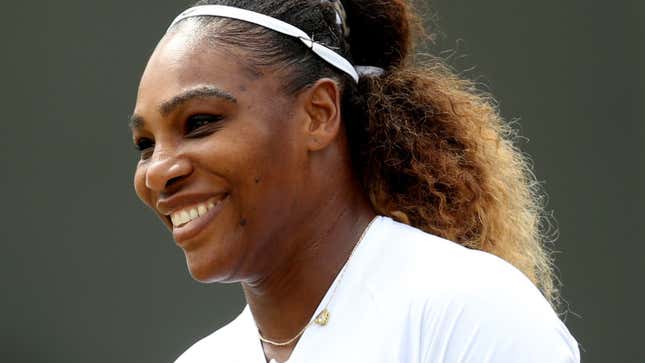
What does it mean when the most recognizable female athlete in the world can’t get the attention she needs when suffering complications after giving birth? For Serena Williams, it meant becoming intimately familiar with the crisis currently facing so many black expectant mothers—the threat of a life-or-death outcome.
Williams, who documented her own harrowing journey into motherhood in HBO’s Being Serena, is now doing her best to ensure other mothers don’t suffer the same trauma during the prenatal and postnatal period, joining businessman Mark Cuban and more in a $3 million investment in maternal health startup Mahmee.
Per a release:
Moms and babies are falling through the cracks of a fragmented health care industry. This is one of the reasons why the U.S has become one of the most dangerous places in the developed world to give birth, with 700 mothers dying from birth complications, and 50,000 becoming severely injured each year. According to the Center for Disease Control, for every 5 mothers dying in the United States from pregnancy and childbirth, 3 could have been saved.
Mahmee links mom and baby’s health history and data, proactively engages, checks on and monitors patients through “maternity coaches” and escalates concerns to doctors so that mom and baby’s care plan stays up to date and critical red flags aren’t missed. It does this through a HIPAA-secure, online dashboard available to new and expecting parents and their medical providers.
Notably, this round of fundraising was led by black female impresario Arlan Hamilton’s ArlanWasHere Investments, with support from Revolution’s celebrity-fueled Rise of the Rest Seed Fund. Including Williams, Mahmee now boasts five black women investors in this latest round, making 46 percent of the startup’s angel investors women of color.
But even more significantly, Mahmee was co-founded and is led by black woman entrepreneur Melissa Hanna, Mahmee’s CEO, who said in a statement:
In the maternity healthcare process, on the surface there are generally three or four people involved: the mother, the baby, and each of their physicians. What we don’t see are the many other people helping them: nurses, lactation consultants, midwives, nutritionists, therapists, doulas, home health aids, social workers, and more. And this industry is lacking the IT infrastructure needed to connect these professionals from different organizations to each other, and to follow and monitor patients across practices and health systems. This missing element creates gaps in care. Mahmee is the glue that connects the care ecosystem and closes the gaps.
With over 1,000 providers and organizations in its current network, Mahmee is in a prime position to address the maternal mortality crisis—including the terrifying fact that the United States is currently the most dangerous place in the developed world to give birth.
Working with both private and Medicaid-focused health plans, Mahmee’s care management team assesses potential risks and works with providers to ensure adequate care and life-saving interventions, when necessary. This latest round of funding will enable Mahmee’s team of engineers, clinicians and sales staff to grow, as well as cultivating more partnerships with health systems across the country.
“I am incredibly excited to invest and partner with Mahmee,” said Williams, who invested through Serena Ventures. “Given the bleak data surrounding maternal death and injury rates, I believe that it is absolutely critical right now to invest in solutions that help protect the lives of moms and babies. Mahmee’s data-driven approach is the right solution to one of the most significant problems in the system: that of fragmented care.”
Williams would know better than most; even with the level of care her privilege could afford, she was at risk. Making strategic care and targeted solutions available to a broad swath of expectant mothers is crucial in stopping a health crisis that has made what should be a special time frankly terrifying to many women preparing to give birth.
“It is my honor to serve as Mahmee’s lead investor in their Series Seed,” Arlan Hamilton said in the release. “This is truly one of those cases whereby doing good (in some cases saving lives), the team can do well.”

